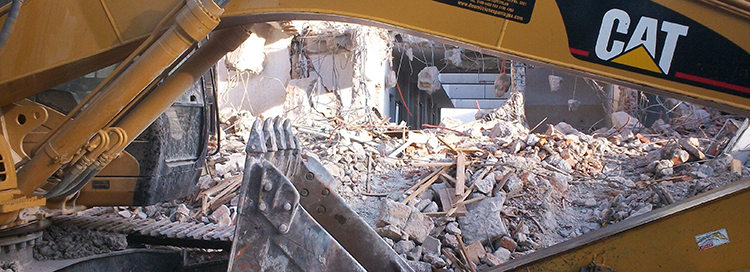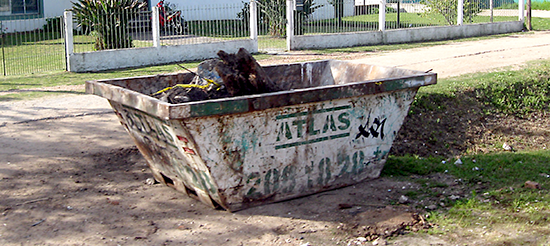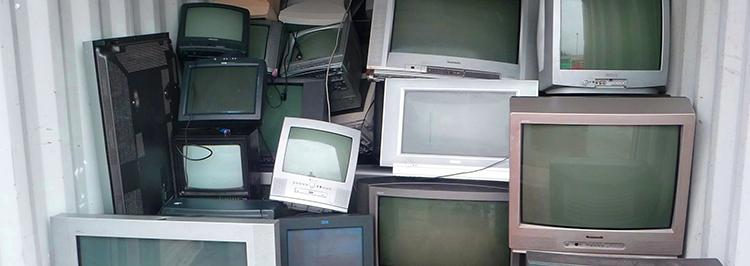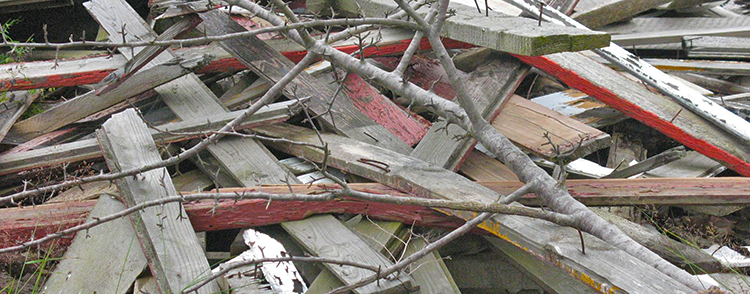We review the last 7 New Jersey recycling exemptions.
In a couple of previous posts, we discussed which New Jersey recycling activities are exempt from the need for a full blown New Jersey recycling approval, which can be a long, costly, and expensive item to get.
If you run an operation in New Jersey that's capable of using a recycling exemption versus getting coverage under a permit, you're in luck. You can save time, money, and a massive headache by using an exemption, allowing you to get into the recycling business quickly and easily.
So, without delay, let's review the last 7 recycling exemptions in New Jersey.

The Last 7 New Jersey Recycling Exemptions Explained
Here is a short summary of the last 7 of these New Jersey recycling exemptions (listed by exemption number, corresponding to their listing at NJAC 7:26A-1.4(a) in the solid waste regulations) out of the 24 available.
New Jersey Recycling Exemption #18
This is another yard trimming exemption. It's specifically about yard trimmings for composting at agricultural and horticultural sites.
It comes with several restrictions, such as:
- Leaves or grass have to be placed in windrows within 1 week of receipt
- Compost windrows must be located certain specific distances away from property boundaries which is based on the type of adjacent uses
- The use of the finished compost must be part of an approved agricultural management plan, mining restoration plan, or other similar plan.
Most commonly this exemption is going to be used at a farm or other type of agricultural operation.
New Jersey Recycling Exemption #19
Again this pertains to leaves, specifically, leaf transfers.
This is pertaining to the receipt and transfer of leaves, which allows the receipt of less than 1,000 cubic yards per day at a site for later transfer to an off-site approved recycling center.
This would be applicable, for example, at a municipal yard which collects leaves of residents and then transfers them to an approved recycling facility elsewhere.
New Jersey Recycling Exemption #20
This is also known as the “Contractor’s Exemption”, and this is another big one and one of the most commonly used one.
This exemption allows a construction company or contractor, through their construction or demolition activities that generate source separated concrete, asphalt, brick, and block, to store and process these materials at their own yards.
This is valid provided that you are the sole generator of the material, and that you are the sole user of the finished product. In other words, you produce, you can process it at your yard, and you must then be the user of the recycled material on a future project of yours.
For example, if a road contractor produced broken concrete curbing and pavement, it could be brought back to their yard and processed (crushed) into material that then could be used on their future projects.
They keys here are this:
- The same company must produce and use the material.
- No material can come from outside parties.
- You can't sell the material at all.
New Jersey Recycling Exemption #21
This is regarding Class C recyclable materials (such as food waste, leaves, or grass) that are produced at a site and which are then sold or used off-site.
The key here is that these materials are produced on the site and they can’t come in from outside sites or sources.
New Jersey Recycling Exemption #22
Again with leaves! This exemption is for the receipt and transfer of no more than 3,000 cubic yards per year of leaves or 1,000 cubic yards per year of grass clippings.
This exemption is similar to #19 above, except with higher limits and more restrictive conditions, particularly on grass clippings.
Again, it's one of the most commonly used exemptions.
New Jersey Recycling Exemption #23
This is regarding agricultural operations, as this exemption covers the receipt and processing of farm feedstock.
The restrictions in place for this on are the activity is conducted on a farm, and the materials involved (a maximum of 10,000 cubic yards per year to be received or composted) are only limited to those commonly found on farms.
The actual terminology on the exemption is more specific, but just be aware this has some fairly restrictive conditions.
New Jersey Recycling Exemption #24
This exemption is for the receipt and storage of architectural salvage items at a commercial enterprise.
For example, windows, doors and salvaged wood siding from the demolition of a building being sold at a reclaimed lumber yard.
Every New Jersey Recycling Exemption
Well there you have it folks. That's all the recycling exemptions in New Jersey laid out. The first two articles, as well as an article reviewing only the most common exemptions, can be found here:
Of those New Jersey recycling exemptions above, we most commonly are involved with obtaining the “contractor’s exemption”, which seems to be pretty commonly used. For a full breakdown on that exemption, check out our article on New Jersey Recycling Exemption #20 - The Contractor's Exemption.
As we have said in the previous posts about these recycling exemptions, if you can operate under any of these, life is easy for you. All you need is a fairly quick and easy notification made to NJDEP of your intent to operate, after which you’re free to operate (in strict accordance with the conditions of the recycling exemption you’re covered under). And, don’t forget, you must always be in compliance with any other regulations that might apply, such as local zoning regulations or any necessary NJPDES stormwater permits.
If we can provide any clarification or answer any questions regarding these various New Jersey recycling exemptions or any other aspect of NJDEP solid waste or New Jersey recycling permitting programs, click here to contact us or give us a call at 609-693-8301 to discuss your needs today.



